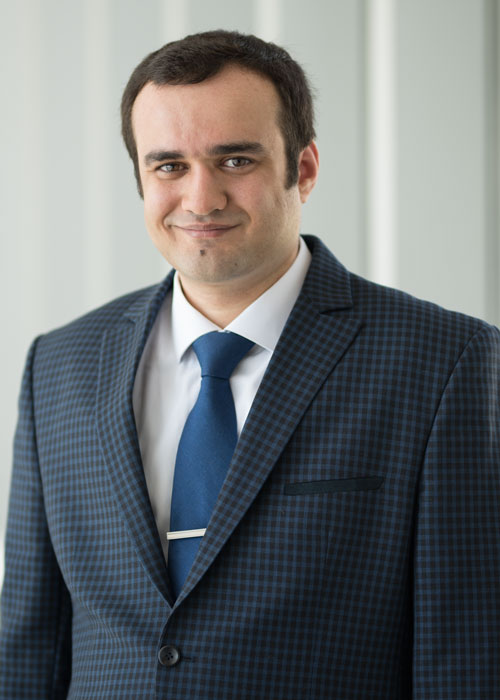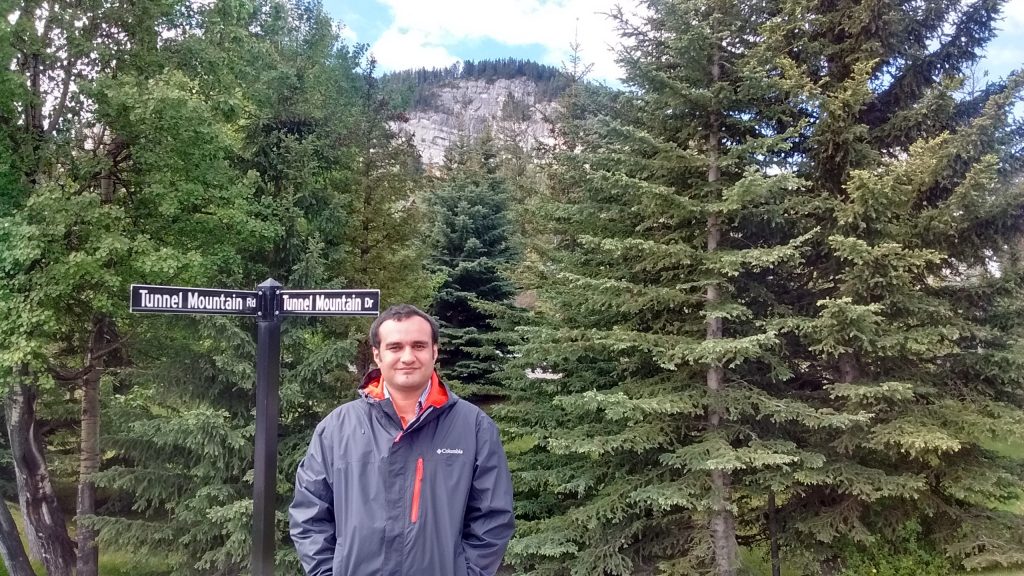Meet Amir Ardestani-Jaafari, Assistant Professor in the Faculty of Management at UBCO.
Tell us about your research.
I am interested in investigating Operations and Supply Chain Management (OSCM) problems under uncertainty. I’m passionate about addressing uncertainty; we can find uncertainty everywhere— in customer demands, traffic congestion, electricity consumption, and the growth rate of COVID-19, to name just a few examples. Applications that have caught my attention include, but are not limited to, inventory management, facility planning, operating-room planning and stroke-patient allocation problems. I use robust optimization (RO) techniques to mathematically formulate and address the source of uncertainty in these problems. The goal of RO is to prevent, or prepare us for, the worst-case scenario.
Can you share some examples of your work?
In one study that was recently published in the European Journal of Operational Research, my colleague and I investigated how to simultaneously consider uncertainty in supplier reliability and market demand in global sourcing. Using RO techniques, we showed that a supply-side disruption associated with compliance failure can be 10 times more destructive than the market’s uncertainty.
I’ve also looked at stroke-routing protocol; everyone thinks that the closest hospital or the closest stroke hospital is the best hospital to take stroke patients to, but that’s not necessarily true, because treatment requires many specialized care providers. We used mathematical modelling to answer the question about which hospital is the best choice, based on symptoms and severity of the stroke.
Has the COVID-19 pandemic inspired new areas of research for you?
I have been working with my Faculty of Management colleague Eric Li in the area of food bank operations since last year. The pandemic has raised several important operational questions for the Central Okanagan Community Food Bank in terms of inventory management and supplier uncertainty. There have been a number of disruptions on the supplier side; because of the pandemic there were fewer farm workers, so farms could not donate as much as they normally would to the food bank. In addition, COVID-19 has given a shock to suppliers.
At the same time, the food bank is experiencing an increased demand for their services, and there’s also the challenge of matching families with supplies—a senior couple has much different needs than a young family with babies, for example. So how can we consider the preferences of clients when providing support? We have developed a mathematical model to address these questions and investigate the sources of uncertainty, so that they can be mitigated.
How did you become interested in this research area?
My background is in industrial engineering. I worked in facility planning and materials handling in my home country of Iran, where I pursued a master’s degree in operational and industrial engineering at Tehran Polytechnic. I realized, during my master’s degree, that the uncertainties we experienced in manufacturing, such as the flow between facilities, could have a significant impact on the performance of a company. I decided to investigate this further and came to Canada for my PhD at HEC Montréal, where I applied robust optimization techniques to inventory management and facility location—two areas that are the building blocks of many industrial problems. I began to see how robust optimization can be applied to many other fields, including healthcare.
What do you find most fulfilling about your work?
Personally, I find that when we look at worst-case analysis, we are better prepared for the future. You stay one step ahead. Instead of only considering the probability of something happening, we should consider its potential impact. COVID-19 shows that sometimes we can have a scenario with a small likelihood of occurring but with a huge impact on the globe.
Take the summer wildfires in B.C. We’ve had them for many years. Each year’s wildfires caused significant damage, but it isn’t surprising because we’ve had them in the past, and we are more prepared each year to address them. But an extreme scenario like COVID-19 was exceptional, and few countries had looked at and prepared for such this worst-case scenario of a viral pandemic.
Where do you plan to take your research from here?
I am now interested in extending my research area to data-driven decision-making. Recent advances in the field of business analytics have helped researchers better integrate data into the decision-making process. My plan is to develop data-driven RO techniques which enable decision-makers to integrate predictive analytic and prescriptive analytic approaches in a computationally solvable way—particularly in healthcare and supply-chain management. I’m looking forward to this bringing new and exciting research projects to which my current and future students can contribute.

Ardestani-Jaafari in Banff during CORS conference 2016
What is your philosophy when it comes to teaching students about research?
My own academic education has helped me develop a diverse research agenda, and I’ve been provided fantastic opportunities at UBCO to conduct interdisciplinary research with the help of students. I aim to train my students to acquire both managerial insights and business analytics skills to be well-prepared for both academia and industry.
As a research supervisor, I aim encourage students to become flexible in finding their own research directions. My goal is not to dictate what direction is the right one, but to help them determine which approaches they want to take. The rest is all about their innovations. My students always surprise me with innovative ways to achieve their research goals.